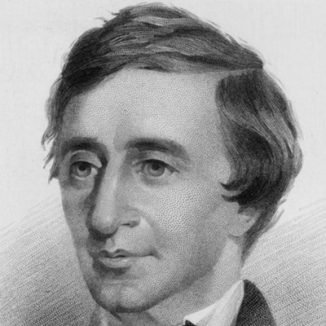On this day 53 years ago, Thor Heyerdhal successfully crossed the Atlantic Ocean on Ra II, a sailboat made of papyrus based on drawings from ancient Egypt. The Norwegian ethnologist and explorer wanted to investigate where such a craft could have actually done the Egyptians any good. The crew had spectacular success, and proved that ancient mariners could have had trans-Atlantic voyages sailing with the Canary Current. READ what happened… (1970)

Like anyone who tries to field test theories on ancient history rather than publishing scientific papers, Heyerdhal attracted a great deal of criticism for his work from probably-jealous scientists. They didn’t find his approach scientific, and they didn’t like his theory that parts of Polynesia could have been settled by South Americans.
In any case, while testing the first papyrus raft, the crew of The Ra crew included Thor Heyerdahl (Norway), Norman Baker (US), Carlo Mauri (Italy), Yuri Senkevich (USSR), Santiago Genovés (Mexico), Georges Sourial (Egypt), and Abdullah Djibrine (Chad) discovered that a key element of the Egyptian boatbuilding method had been neglected; a tether that acted like a spring to keep the stern high in the water while allowing for flexibility.
Water and storms eventually caused it to sag and break apart after sailing more than 6,400 km (4,000 miles). The crew was forced to abandon Ra, some hundred miles (160 km) before the Caribbean islands, and was saved by a yacht.
The following year, 1970, a similar vessel, Ra II, was built from Ethiopian papyrus by Bolivian citizens Demetrio, Juan and José Limachi of Lake Titicaca, and likewise set sail across the Atlantic from Morocco, this time with great success.
MORE Good News on this Day in History:
- The first minimum wage was established—at 33 cents per hour—by the United States Congress (1933)
- 19-year-old Elvis Presley quit his day-job after signing his first recording contract with Sun Records, the music company that realized “here was the man who could bridge the gap between white and black performances” (1954)
- The Rolling Stones performed in public for the first time, at the Marquee Club in Soho, London (1962)
- Geraldine Ferraro became the first woman nominated for vice-president by a major U.S. political party, chosen by Walter Mondale of the Democratic party (1984)
- São Tomé and Príncipe declared independence from Portugal (1975)
- Happy Birthday to activist Malala Yousafzai who turns 25 today (1997)
28 years ago, Chinese seismologists successfully predicted an earthquake that occurred on the border between Yunnan and Myanmar, sending out an early warning to citizens living on or near the shared border which potentially saved thousands of lives. The quake registered 7.3 on the Chinese surface wave magnitude scale, destroyed over 100,000 buildings, and killed 11 people, both of which would undoubtedly be much higher if it had not been one of the few successfully predicted earthquakes in history.

Like predicting a stock market crash, it’s extremely difficult to pinpoint the moment a major earthquake would occur, and involves trying to correlate small related events. The Yunnan Seismological Bureau was monitoring the situation all the way back in September of the previous year, when the area between Shan, Myanmar, and Yunnan, China played host to a series of minor quakes over a period of 7 months. Seismologists also detected strange anomalies in the seismological parameters in that region. Changes to water levels in Shidian County were also interpreted as signs of a large earthquake.
After the 6.2 ML foreshock on July 10, the Yunnan Seismological Bureau dispatched a team to the region closest to the epicenter. A meeting was also conducted and seismologists concluded that a mainshock with a magnitude of ~7.0 should strike. An evacuation order was recommended by scientists from the Yunnan Provincial Earthquake Administration after the forecast. Less than 30 hours after that forecast, the mainshock struck. The Bureau received wide public celebration for their prediction. (1995)
Happy 52nd Birthday to former champion figure skater Kristi Yamaguchi. The California US champion, and two-time World champion, became the first Asian-American woman to win a gold medal in a Winter Olympic competition. Also, as a pairs skater she was a two-time national champion. After retiring at age 21, she went pro and toured with her skill. She was on Dancing with the Stars (season 6) and was the celebrity champion.

In 1996, Yamaguchi founded the Always Dream Foundation, a nonprofit with a mission statement that reads: “our greatest gift to a child is to provide them with the necessary literacy resources to increase overall academic success and life potential.”
Always Dream is also the name of one of the several books that she has penned, including children’s books, such as Dream Big, Little Pig. (1971)
Today is another day in New York City when the sunset occurs along the center line of Manhattan’s street grid, known as the NYC Solstice, or Manhattanhenge.

If you missed it yesterday, the half sun, if there is no cloud cover, will again be illuminating both sides of the street at 8:30 p.m.
Also, on this day in 1817, the writer and naturalist Henry David Thoreau was born, in Concord, Massachusetts. A leading transcendentalist and one of the first environmentalists, Thoreau is best known for building his own tiny one-room cabin on nearby Walden Pond and writing a book about simple living in natural surroundings.
 As he set out to “live deliberately,” he found spiritual fulfillment within the harmony of nature’s four seasons. Also an abolitionist and tax resister, Thoreau’s books, articles, essays, and poetry have influenced many of the great thinkers of the 20th century. Among his lasting contributions are his writings on natural history and an essay “Civil Disobedience”, an argument for disobedience to an unjust state, which influenced the political thoughts of such notable figures as Leo Tolstoy, Mahatma Gandhi, and Martin Luther King Jr. As a philosopher, he said famously, “If one advances confidently in the direction of his dreams, and endeavors to live the life which he has imagined, he will meet with a success unexpected in common hours.“ See more of Thoreau’s writings on Amazon.
As he set out to “live deliberately,” he found spiritual fulfillment within the harmony of nature’s four seasons. Also an abolitionist and tax resister, Thoreau’s books, articles, essays, and poetry have influenced many of the great thinkers of the 20th century. Among his lasting contributions are his writings on natural history and an essay “Civil Disobedience”, an argument for disobedience to an unjust state, which influenced the political thoughts of such notable figures as Leo Tolstoy, Mahatma Gandhi, and Martin Luther King Jr. As a philosopher, he said famously, “If one advances confidently in the direction of his dreams, and endeavors to live the life which he has imagined, he will meet with a success unexpected in common hours.“ See more of Thoreau’s writings on Amazon.
And, a fond farewell to the wonderful Christine McVie, the Fleetwood Mac songwriter, vocalist, and keyboardist who passed away this year, before turning 80.

A member for over three decades, she also released three solo albums — and one was a collaboration with bandmate Lindsey Buckingham. Known for her smoky British vocals and catchy lyrics, eight of McVie’s songs appeared on Fleetwood Mac’s 1988 Greatest Hits album. WATCH her perform her song, (I wanna be with you) “Everywhere”…(1943)
On this day 128 years ago, the architect, author, and inventor Buckminster Fuller was born in Massachusetts. Also a futurist, he published over 30 books, and popularized the geodesic dome as a living space.
‘Bucky’ disagreed with the way geometry was taught in school, being unable to experience for himself that a chalk dot on the blackboard represented an “empty” mathematical point, or that a line could stretch off to infinity. To him these were illogical, and led to his work on synergetics.

At age 32, after he lost his job and was suffering financially to support a family, Bucky said he had a profound experience that provided direction and purpose for his life.
He was surrounded by white light and a voice spoke directly to Fuller, and declared:
“From now on you need never await temporal attestation to your thought. You think the truth. You do not have the right to eliminate yourself. You do not belong to you. You belong to Universe. Your significance will remain forever obscure to you, but you may assume that you are fulfilling your role if you apply yourself to converting your experiences to the highest advantage of others.”
Fuller was compelled to re-examine his life—and he ultimately chose to embark on “an experiment, to find what a single individual could contribute to changing the world and benefiting all humanity”. And he did just that, until he died in 1983. Watch a video… (1895)
SHARE the Memories, Milestones, and Music…





















[…] The Good News Network […]